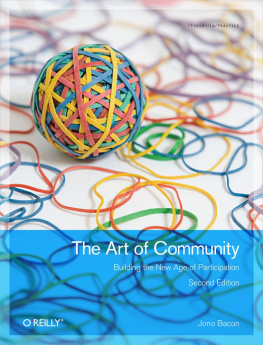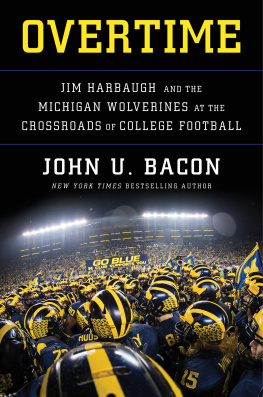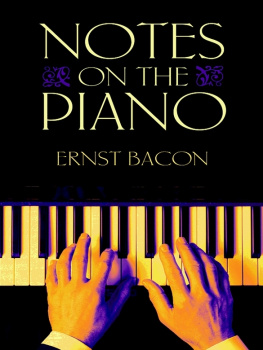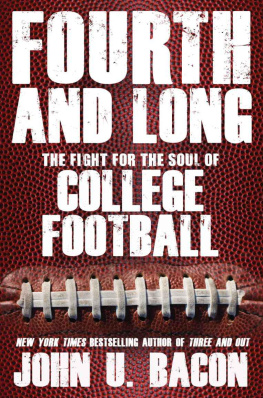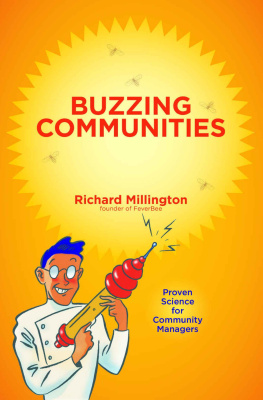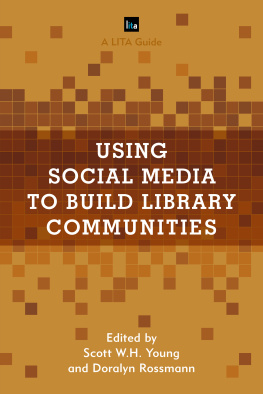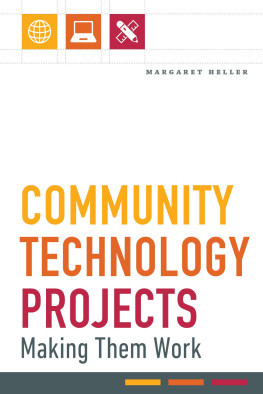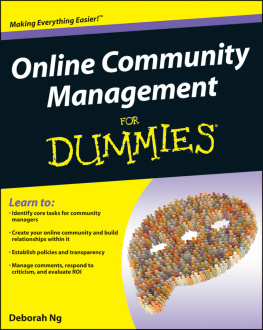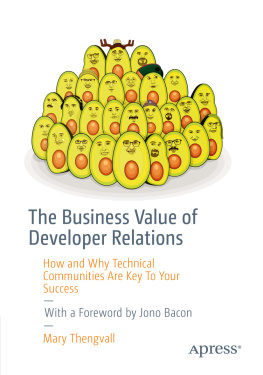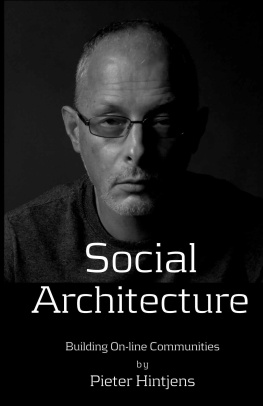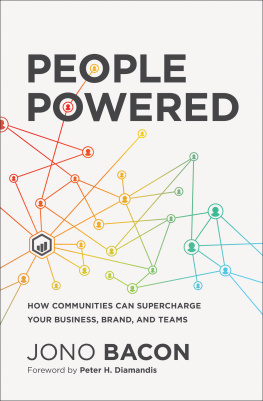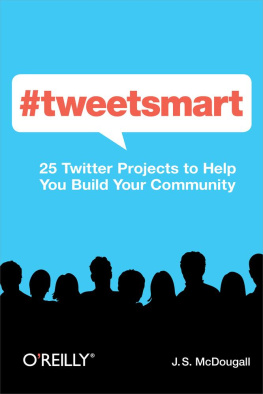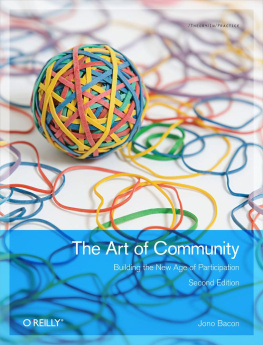Foreword from the First Edition
From ants to anteaters, bees to beekeepers, community is a fundamental part of our life on the planet. We thrive when we are immersed in it, suffer when deprived of it, and wherever humans go we create it. We define ourselves by our communities: tribe, family, work, clubs, schools, churches and temples, these are who we are. We are born into community, and if were lucky well end our days surrounded by it.
Its no surprise that as soon as humans began to go online, communities formed, but as easy and natural as group formation is for us in real life, we can find it frustrating online. Many of the cues that grease the wheels of human interaction in person are missing online. Gone is the grin that can soften a criticism, the pat on the back that can heal a rift. How can you hug it out when your antagonist is a continent away and you know no more about him than his handle and a few lines of signature? Online groups can breed the most vicious of rivalries. The Hatfields and McCoys have nothing on alt.tv.doctorwho .
Communities are tough enough to maintain when youre all in the same room; how much harder is it to build, maintain, and nurture a community online? Thats why this book is such a boon to those who run communities and the rest of us who participate in them. Jono Bacon has firsthand experience with managing a group of the most bloody-minded and independent people on the planet: open source programmers. The information in this book has been forged in the white-hot crucible of free software. You dont get tougher than that.
My experience with online forums began 25 years ago when I started a bulletin board for Macintosh users called MacQueue. Its not easy to start a flame war with dual 14.4 kbps modems and 20 MB of storage, but the MacQueuers managed. A few years later I joined The Well, a legendary online community based in Sausalito, California, and imbued with the peace and love ethos of the San Francisco hippies. That didnt last long. The Well went through an arc I came to know intimately, one that most online communities seem to follow.
When any affinity group forms online its a joyous occasion. The founders and early members are wreathed in the cooperative enthusiasm that accompanies most new beginnings. Conversations are civil, helpful, and kind. Posts twinkle with good spirits and bonhomie. Alls right with the Web. Then the rot begins to set in. Tempers flare, resentments build, rivalries form. Its a lot like marriage.
Unlike most marriages, however, online members have looser ties to the group and a reduced stake in its success. When trolls become annoying, the flame wars too fiery, members move on, and pretty soon that happy online forum turns into a ghost town, or worse.
But it doesnt have to be that way. With his usual wit and good humor, Jono has written a guide with everything you need to keep your online groups healthy and productive. With proper planning, a modicum of guidance, and the occasional banishment, your community can avoid that seemingly inevitable descent into fear and loathing. We need good community managers because we need healthy communities online. Ive started my share of communities online, and killed a few with neglect, too. Im so grateful to Jono for giving me the tools to do it right from now on. I know we all are.
Leo LaporteBroadcaster and Founder of the TWiT Network Petaluma, California June 30, 2009
Foreword
When Im not running Wired , I run a community called DIY Drones . Here more than 20,000 members collaborate to make open source unmanned aerial vehicles (UAVs), which are essentially fully autonomous airplanes, helicopters, and other things with spinning propellers that fly all by themselves.
The DIY Drones community has created countless products, but the most successful is ArduPilot, a series of autopilots based on the Arduino computing platform. Were part of the Open Hardware movement, which is to say that there is both a software and a hardware element to the autopilots our community creates, and both are open source. Although I and others also have commercial companies that make and sell this hardware (mine is called 3D Robotics), under the terms of the open source license, anybody, absolutely anybody, can use the designs our community creates and make them to compete with us. It may sound crazy, but such openness can create innovations faster, cheaper, and better than traditional closed source research and design in regular companies. The only risk is that some other company will clone the product and sell it for less, fully within the legal terms of the license.
This is exactly what happened in late 2010. We got word that Chinese copies of our ArduPilot Mega design were for sale on Taobao, eBay, and other online marketplaces. And indeed they werewell-produced, fully functional clones. Not only that, but our English instruction manual had been translated into Chinese, too, along with some of the software.
Our community members reported this blatant piracy and asked what we were going to do about it.
Nothing, I said:
This is both expected and encouraged in open source hardware. Software, which costs nothing to distribute, is free. Hardware, which is expensive to make, is priced at the minimum necessary to ensure the healthy growth of a sustainable business to ensure quality, support, and availability of the products, but the designs are given away free, too. All intellectual property is open, so the community can use it, improve it, make their own variants, etc.
The possibility that others would clone the products is built into the model. Its specifically allowed by our open source license. Ideally, people would change/improve the products ("derivative designs") to address market needs that they perceive and we have not addressed. Thats the sort of innovation that open source is designed to promote. But if they only clone the products and sell them at lower prices, thats okay, too. The marketplace will decide.
BTW, the Arduino development boards have gone through exactly the same situation, with many Chinese cloners. The clones were sometimes of lower quality, but even when they were good, most people continued to support the official Arduino products and the developers that created them. Today, clones have a small share of the market, mostly in very price-sensitive markets such as China. And frankly, being able to reach a lower-price market is a form of innovation, too, and that is no bad thing.

